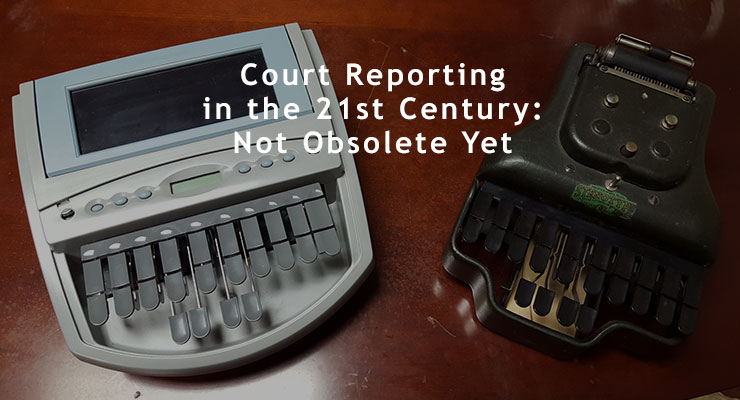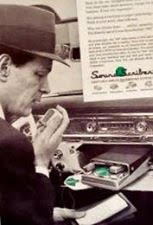
In the 1970’s, when my dad first became a court reporter, I was a toddler and learning the English language. In those days, court reporters still dictated their paper notes and then sent those recordings off to a typist who used carbon paper for multiple copies. Listening to my dad dictate late into the night, I thought at the end of a sentence you were supposed to say the word “period”. I was three or four and it just seemed natural since I heard it every night.
 Court reporting has come a long way since the days of dictation. What really strikes me is back in the 70’s, with the advent of audio recording, people used to always ask my dad if he was worried that this new technology was going to make him obsolete. Almost 45 years later, I get the same question on a regular basis. I have thought quite a bit why court reporters have been so successful despite the advancements in audio recording technologies.
Court reporting has come a long way since the days of dictation. What really strikes me is back in the 70’s, with the advent of audio recording, people used to always ask my dad if he was worried that this new technology was going to make him obsolete. Almost 45 years later, I get the same question on a regular basis. I have thought quite a bit why court reporters have been so successful despite the advancements in audio recording technologies.
I think the answer to this question is court reporters have always been willing to accept new technologies and incorporate them into the court reporting industry. In the early 1980’s, my parents bought a computer aided transcription (CAT) system from Baron Data that filled an entire room. The “floppy disks” for this computer system weighed about three pounds and were about 20 inches in diameter. They stored less data that the 1990’s 3.5 inch, 1.44 MB floppy disks. The court reporters used to schedule time on the computer at all hours of the day because it was shared amongst twelve different people.
Today we have realtime reporting and every reporter sets up a laptop on the job. There is no dictation, carbon paper or even dot matrix printers. The 5.25 inch and 3.5 inch floppy disks have all but disappeared. We as an industry have welcomed other technologies such as realtime reporting, videotaped depositions (going from BETA, VHS…through cloud repositories), videoconferencing, digital exhibits and synchronized transcripts and video. We have used those technologies to help ourselves and our clients become more efficient. Embracing this technology has kept us viable in the legal industry and allowed many to branch off to other industries like CART or closed captioning.
Here’s a salute to all the court reporters who invest in themselves and the industry. Here’s a salute to the future court reporters who will do the same and carry the profession into the 22nd century. Technology won’t make court reporting obsolete, it will make it stronger.
ABOUT THE AUTHOR:
Todd Mobley is the president, accountant, and videographer for Mike Mobley Reporting. He has served on numerous committees of national and Ohio court reporting industry associations. Connect with him on LinkedIn.